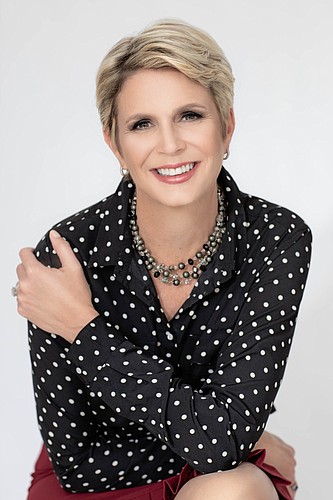- April 5, 2025
-
-
Loading

Loading

During economic downturns like this one from COVID-19, the natural inclination for many businesses is to cut costs — and such trimming often starts with marketing and advertising budgets. Consequently, ad agencies take a financial hit.
Not so for St. Petersburg-based Marketing Direction, a 10-year-old company that has thrived on a business model that provides outsourced chief marketing officers to businesses that don’t have the need or budget for a full-blown marketing department.
Founder and President Christy Vogel says the COVID-19 shutdown was a boon for the firm, which took on three new clients and is in the process of securing a fourth. In May, Marketing Direction’s year-over-year revenue was up by 86%, she says, and the firm is on track to crack the $1 million mark, for the first time in its history, in 2020.
“Unfortunately, what we're seeing with some other marketing agencies out there is that overnight they've lost most, if not all, of their clients,” Vogel says, “especially those agencies that serve hospitality and other industries that are most affected by all of this.”
One of the key elements that's helped the firm get through the crisis, beyond its model, is that it works primarily with B2B clients, many of whom qualified as providers of essential services under guidelines issued by Gov. Ron DeSantis. Case in point: St. Petersburg-based DDP Medical Supply, a distributor of health care products. “Instead of scaling down,” Vogel says, “they're saying, ‘No, we need to ramp up quickly.’”
“Our clients only pay for what’s needed. The lead marketer orchestrates the entire team.” Christy Vogel, founder and president of Marketing Direction
While more work was coming in from a variety of clients, that also represented a big challenge for Marketing Direction, which has 21 staff members, the majority of whom are independent contractors. Vogel, 52, says the company had to quickly devise new communication strategies for clients that underwent major transitions in the way they do business because of COVID-19.
For example, Tampa-based Product Fulfillment Solutions executed a big shift, going from a supplier to retailers like Bed Bath & Beyond to selling directly to consumers.
“A B2B company switching to B2C, it looks completely different — and your marketing is completely different as well,” Vogel says. “So as business strategies are shifting, your marketing strategy would have to change at the same time.”
Marketing Direction’s most in-demand service is what Vogel calls “taking inventory” — comprehensive reviews of clients’ communication to their customers. That means examining and often tweaking the content of websites, social media posts, email communications and paid media campaigns.
Vogel says the most effective change for many clients during COVID-19 has been a simple shift in tone. “It was less about selling and more about caring and that we have a solution for you,” she says. “It was more along the lines of, ‘We are here for you’ and ‘How are you?’”
But unlike the economic downturn of the late 2000s and early 2010s that unfolded slowly, this change in messaging had to happen extremely quickly, Vogel says.
The financial crisis, she says, “was almost like a snowball that slowly got going and then really started catching speed. Whereas with COVID-19, everything's been much more cut and dried.”
Social media posts, in particular, posed a challenge in that they are often set up and approved weeks, sometimes a month, in advance. Marketing Direction’s CMOs — or lead marketers, as Vogel calls them — “had to look forward to what's already set up and approved and eliminate some that were no longer sensitive. … We had to make adjustments on the fly,” Vogel says.
Marketing Direction’s lean business model proved to be another asset. The company employs a pool of experts in nearly every core marketing skill set, including strategy, social media, content writing, search engine marketing or graphic design. The lead marketers can then activate whatever expertise is needed to help a particular client.
“Our clients only pay for what’s needed,” Vogel says. “The lead marketer orchestrates the entire team.”
Marketing Direction’s clients sign long-term agreements. But instead of having them pay a flat monthly retainer fee, Vogel spends about a month getting to know a client’s specific needs and then constructs a strategic blueprint full of specific line items, work-hour estimates and expected deliverables.
“Each line item shows how many hours it will take for our team to complete it, as well as any kind of hard costs that are involved,” she says. “So each month, they’re paying for exactly what we're providing them — no more, no less. It's transparent to the client.”
In a time of the coronavirus, certainty itself can be a valuable commodity.